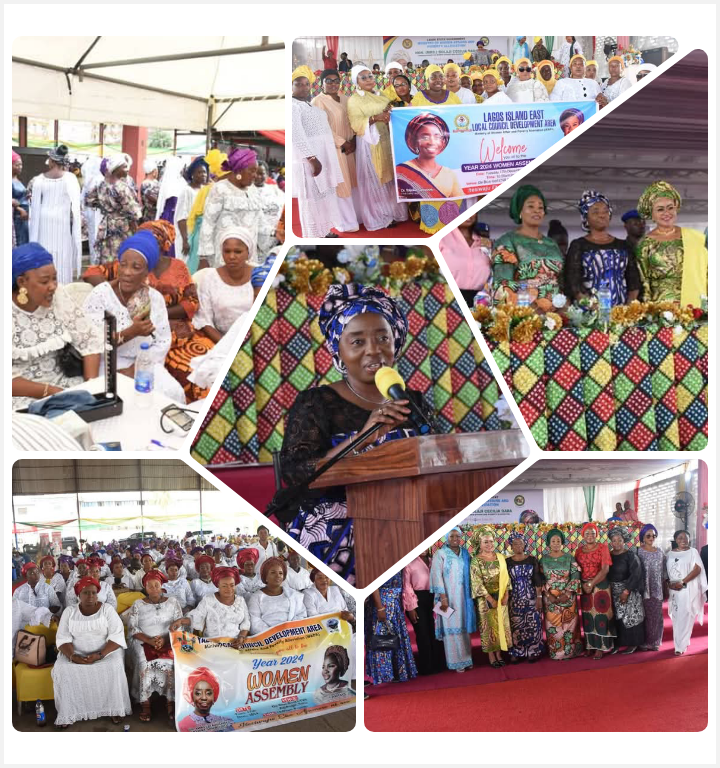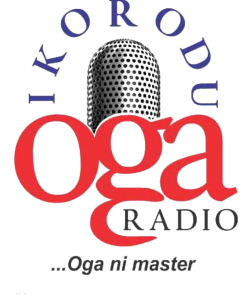
Lagos State Governor, Mr. Babajide Sanwo-Olu, has reaffirmed his administration’s commitment to advancing and empowering women, describing them as the pillars of communities, contributing in numerous ways as mothers, entrepreneurs, educators and leaders.
Governor Sanwo-Olu stated this in his keynote address at the 2024 Women’s Assembly for Local Government and Local Council Development Areas organised by the Ministry of Women’s Affairs and Poverty Alleviation (WAPA) at the De Blue Roof, LTV 8 complex, Agindigbi Ikeja.
The Governor, represented by the Secretary to the State Governor, Bimbola Salu-Hundeyin, described the Assembly as a critical platform for celebrating women’s contributions and tackling challenges affecting their well-being.
He restated his administration’s commitment to prioritising women through policies and programmes aimed at economic empowerment, political inclusion, and grassroots engagement, highlighting initiatives such as skill acquisition programmes, micro-credit schemes, and entrepreneurial support to foster financial independence among women.
The Governor also stressed the need for more women in leadership roles and governance to create a more inclusive society, saying “Women are the pillars of our communities, contributing as mothers, entrepreneurs, educators, and leaders”.
While maintaining that when women succeed, families are strengthened, and society is transformed, he lauded the efforts of the Commissioner for Women Affairs and Poverty Alleviation, Hon. Bolaji Cecilia Dada, for her leadership in advancing programmes that benefit women and families across Lagos State.
Mr. Governor also expressed gratitude to his wife, the First Lady, Dr. (Mrs.) Ibijoke Sanwo-Olu, and the wife of the Deputy Governor, Mrs. Oluremi Hamzat, for their steadfast support and advocacy for women and children.
The Special Guest of Honour and the First Lady of Lagos State, Dr. (Mrs.) Ibijoke Sanwo-Olu noted that all must stand united in advocating for women’s rights and opportunities, ensuring that women, no matter their status and location in the state, are equipped with the tools and resources they need to thrive.
Dr. Sanwo-Olu said by encouraging active participation in governance, the voices of women can be amplified in decision-making processes, adding that by raising awareness of the prevention of domestic violence and supporting victims, all stakeholders can create safer and more inclusive communities.
Earlier in her welcome address, Commissioner for Women Affairs and Poverty Alleviation, Hon. Bolaji Cecilia Dada, echoed the Governor’s words, describing the assembly as a call to action for addressing women’s health, economic stability, and political representation.
She announced that the assembly will feature free health screenings, including checks for blood pressure, cancer, and eye health, alongside discussions on nutrition and health insurance options provided by the Lagos State Health Management Agency (LASHMA).
The Commissioner also emphasised the importance of economic empowerment to break the cycle of poverty, highlighting the state government’s efforts to encourage women’s active participation in politics and leadership.
In his presentation, a renowned Psychiatrist and Clinical Psychologist, Professor A. Olurotimi Coker, spoke on mental health issues, noting that common mental disorders such as anxiety disorders and depression are on the increase in Nigeria and that one in four people will eventually develop or live with some forms of mental disorders.
Coker urged women to recognise their stressors and deal with them, take breaks or mini vacations, improve their social relationships, set goals, become emotionally resilient, try out music and dance therapy, cultivate healthy lifestyles, and seek medical support when necessary.
Other notable speakers were the founder of the Menopause Support Initiative, Mosunmola Dosunmu, who addressed managing menopause; and a registered dietitian, Mr. Olusola Malomo, who delivered insights on nutrition and healthy living.
The event drew participants from diverse backgrounds, including market women, artisans, widows, and women from rural and riverine communities across Lagos State.


